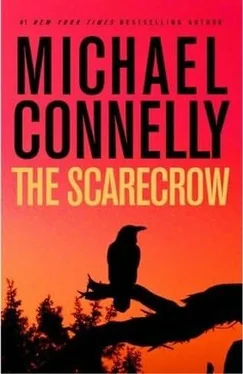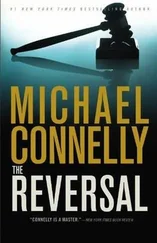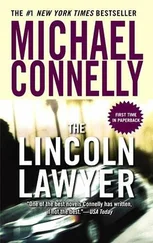Stone dropped the bag he was filling and crossed the concrete floor. He looked over Carver’s shoulder at the middle screen. Carver double-clicked the photo to make it larger.
“Is that her?” he asked.
“I told you, all I got was a quick glance when I went by the room. I didn’t really even see her face. She was in a chair sort of to the side. I didn’t have the angle on her face. It could be her, but maybe not.”
“I think it was her. She was with Jack. Rachel and Jack, together again.”
“Wait a minute. Rachel?”
“Yes, Special Agent Rachel Walling.”
“I think… I think he said that name.”
“Who?”
“McEvoy. When he opened the door and went in the room. When I was coming up behind him. I heard her. She said, ‘Hello, Jack.’ And then he said something and I think he said her name. I think he said something like ‘Rachel, what are you doing?’ ”
“Are you sure? You didn’t say anything about a name before.”
“I know, but you saying that brought it back. I am sure he said that name.”
Carver got excited by the prospect of McEvoy and Walling being on his trail. It raised the stakes considerably to have two such opponents.
“What’s that story about?” Stone asked.
“It’s about her and an L.A. cop getting the guy they called the Bagman. He cut up women and put them in trash bags. This picture was taken at the press conference they had. Two and a half years ago in L.A. They killed the Bagman.”
Carver could hear Stone breathing through his mouth.
“Finish gathering your things now, Freddy.”
“What are we going to do? Go after her now?”
“No, I don’t think so. I think we sit back and wait.”
“For what?”
“For her. She’ll come to us, and when she does, she’ll be a prize.”
Carver waited to see if Stone would say anything, whether he would object or offer his opinion. But Stone said nothing, showing he had apparently retained something from the morning’s lesson.
“How’s your back?” Carver asked.
“It hurts but it’s fine.”
“Are you sure?”
“I’m fine.”
“Good.”
Carver cut the Internet link and stood up. He reached down behind the computer tower and detached the keyboard cable. He knew that the bureau could gather DNA from the microscopic bits of skin that fell between the letters on a keyboard. He would not leave this board behind.
“Let’s hurry up and finish now,” he said. “After that, we’ll go get you a massage and take care of that back.”
“I don’t need a massage. I’m fine.”
“I don’t want you hurting. I’m going to need you at full strength when Agent Walling shows up.”
“Don’t worry. I’ll be ready.”
On Monday morning I went on eastern daylight time. I wanted to be ready to react when Rachel called from Washington, so I got up early and cruised into the newsroom at six A.M. to continue my work with the files.
The place was completely dead, not a reporter or editor in sight, and I got a stark feeling for what the future held. At one time the newsroom was the best place in the world to work. A bustling place of camaraderie, competition, gossip, cynical wit and humor, it was at the crossroads of ideas and debate. It produced stories and pages that were vibrant and intelligent, that set the agenda for what was discussed and considered important in a city as diverse and exciting as Los Angeles. Now thousands of pages of editorial content were being cut each year and soon the paper would be like the newsroom, an intellectual ghost town. In many ways I was relieved that I would not be around to see it.
I sat down in my cubicle and checked e-mail first. My account had been reopened by the newsroom techs with a new password the Friday before. Over the weekend I had accumulated almost forty e-mails, most from strangers in reaction to the stories about the trunk murders. I read and deleted each, not willing to take the time to respond. Two were from people who said they were serial killers themselves and had put me on their list of targets. These I kept to show Rachel but I wasn’t too worried about them. One of the writers had spelled it cereal and I took this as a hint that I was dealing with either a prankster or someone of deficient intelligence.
I also got an angry e-mail from the photographer Sonny Lester, who said I had double-crossed him by not putting him on the story as I had agreed. I fired back an equally angry e-mail asking him which story he was talking about, since none of the stories on the case carried my byline. I said I had been left out to a greater extent than him and invited him to take all complaints to Dorothy Fowler, the city editor.
After that I unpacked the files and my laptop from my backpack and got down to work. The night before, I had made a lot of headway. I had completed my study of the records relating to the murder of Denise Babbit and had composed a profile of the murder along with a comprehensive list of the things about the victim that the killer would have had to know in order to commit the crime in the manner in which it was carried out. I was halfway through my study of Sharon Oglevy’s murder and was still compiling the same sort of information.
I set to work and was undisturbed as the newsroom slowly came to life, editors and reporters trudging in, coffee cups in hand, to start another week of work. At eight o’clock I broke for coffee and a doughnut and then made a round of calls at the cop shop, seeing if there was anything interesting on the overnight sheets, anything that might take me away from the task at hand.
Satisfied that all was quiet for the time being, I went back to the murder files and was just completing my profile of the Oglevy case when my first e-mail of the day chimed on my computer. I looked up. The e-mail was from the axman, Richard Kramer. The missive was short on content but long on intrigue.
From: Richard Kramer ‹ RichardKramer@LATimes.com›
Subject: Re: today
Date: May 18, 2009 9:11 AM PDT
To: JackMcEvoy@LATimes.com
Jack, swing on by when you get a chance.
RK
I looked over the edge of my cubicle wall and at the line of glass offices. I didn’t see Kramer in his but from my angle I couldn’t see his desk. He was probably in there, waiting to give me the word on who would be taking Angela Cook’s place on the cop beat. Once more I would be squiring a young replacement around Parker Center, introducing this new reporter to the same people I had introduced Angela to just a week before.
I decided to get it over with. I stood up and made my way to the glass wall. Kramer was in there, typing out an e-mail to another hapless recipient. The door was open but I knocked on it before entering. Kramer turned from his screen and beckoned me in.
“Jack, have a seat. How are we doing this morning?”
I took one of the two chairs in front of his desk and sat down.
“I don’t know about you but I’m doing okay, I guess. Considering.”
Kramer nodded thoughtfully.
“Yes, it’s been an amazing ten days since you last sat in that chair.”
I had actually been sitting in the other chair when he had told me I was downsized but it wasn’t worth the correction. I remained silent, waiting for whatever it was he was going to say to me-or to us, if he was going to continue to refer to both of us.
“I’ve got some good news for you here,” he said.
He smiled and moved a thick document from the side of his desk to front and center. He looked down at it as he spoke.
“You see, Jack, we think this trunk murder case is going to have legs. Whether they catch this guy soon or not, it’s a story we’re going to ride with for a while. And so, we’re thinking we’re going to need you, Jack. Plain and simple, we want you to stick around.”
Читать дальше












